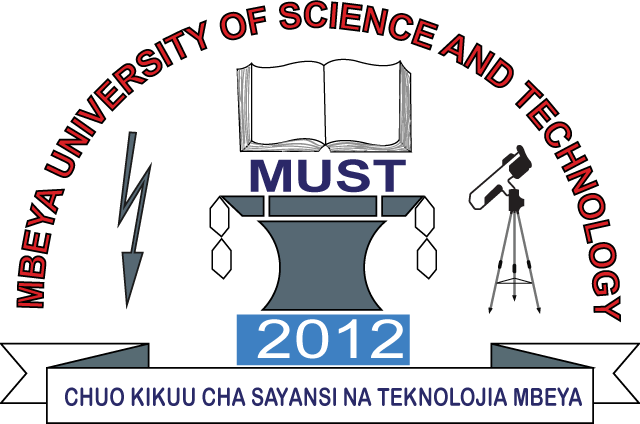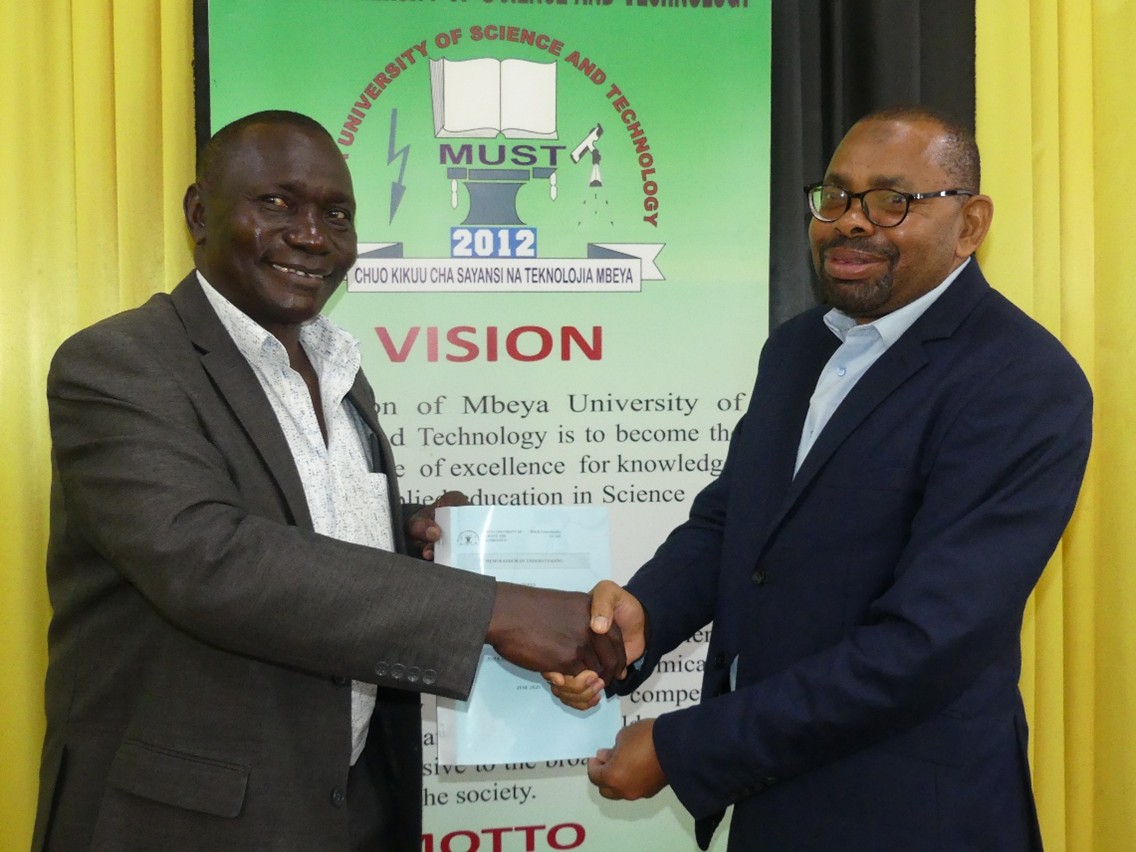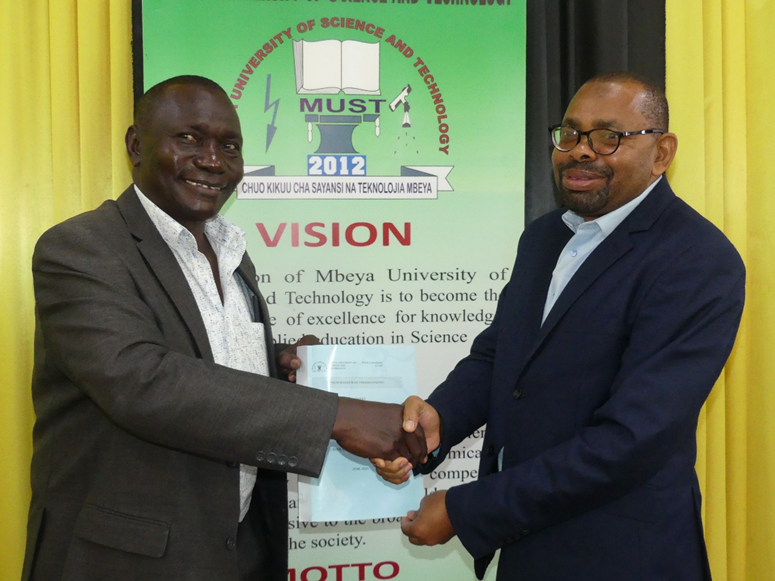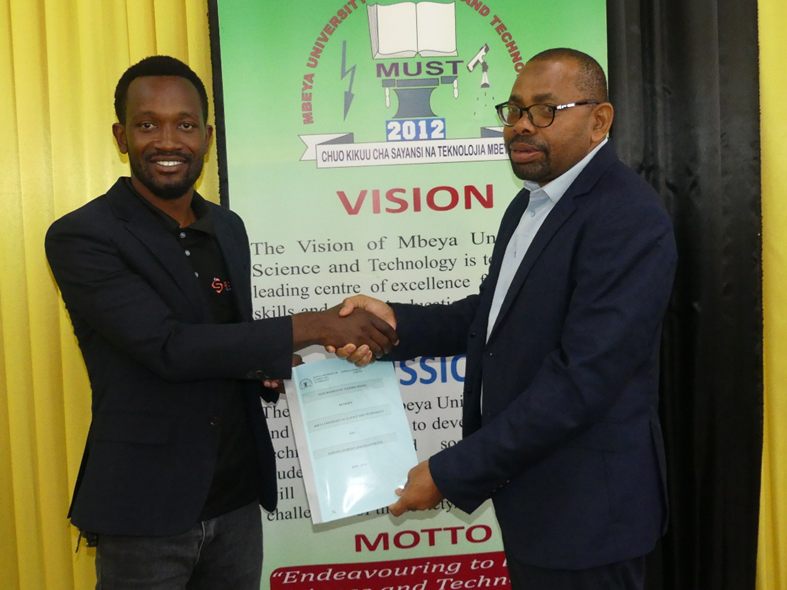
The United Republic Of Tanzania
Ministry of Education, Science and Technology
Mbeya University of Science and Technology
Leading Centre of Excellence for Knowledge, Skills, and Applied Education in Science and Technology


Leading Centre of Excellence for Knowledge, Skills, and Applied Education in Science and Technology


On June 24th and 25th , 2025, the Mbeya University of Science and Technology (MUST) made significant progress in reconnecting with its alumni and boosting industry collaboration by signing two strategic Memoranda of Understanding (MoUs) under the CFIT Phase III Project. The MoUs were signed with two alumni-led entities. The first, MALK Consultants Company Limited, owned by Eng. Joseph Mkisi, a committed alumnus who has hired several MUST graduates. The second, Sopesya Company Limited, a family-owned entity started by a couple who are both MUST graduates. These partnerships represent a significant milestone in the University's efforts to include alumni in its strategic plan for industrial engagement.
In his speech, Prof. Said Vuai, Acting Vice Chancellor and Deputy Vice Chancellor for Academic, Research and Consultancy, emphasised that, “MUST is transitioning from a fourth-generation university to a fifth-generation university, where knowledge, skills, and innovation are seamlessly integrated.” He highlighted that these MoUs open a new chapter, where students will benefit from expanded Industrial Practical Training (IPT) opportunities, guest lectures from industry experts, excursions, and field visits for both students and academic staff, as well as mentorships.
Eng. Joseph Mkisi, Director of MALK Consultants, noted that his company has long collaborated informally with MUST by providing IPT placements and working with university staff. He welcomed the formalisation of this partnership, which will now be implemented in a more structured and impactful manner. Speaking on behalf of Sopesya Company Limited, Arch. Joseph Patrick Sopesya explained that their company has consistently offered hands-on training in carpentry, welding, aluminium work, and other construction-related activities. “This is meant to ensure that students acquire the appropriate skills required in today’s industry,” he emphasised.
Introducing the CFIT Phase III Project, Prof. Zacharia Katambara, Deputy Vice Chancellor for Planning, Finance, and Administration at MUST, and the Project Coordinator, elaborated that one of its core goals is to strengthen ties between academia and the private sector. “The project is designed to ensure that graduate skills are aligned with what the industry needs,” he said, further underlining the need for robust partnerships to maintain the University's relevance to both the community and industrial sectors. Guests were also invited to witness the University's infrastructure transformation under the Higher Education Economic Transformation (HEET) project. These developments include a new Academic Building with a capacity of over 3,000 students, well-equipped workshops, and a state-of-the-art Centre for Innovation and Technology Transfer (CITT).
In conclusion, the University expressed its appreciation for the support provided through the CFIT Project, which has not only increased the number of academic programmes but also significantly enhanced its collaboration with industry. The University management reaffirmed its commitment to ensuring the sustainability and success of these initiatives.

